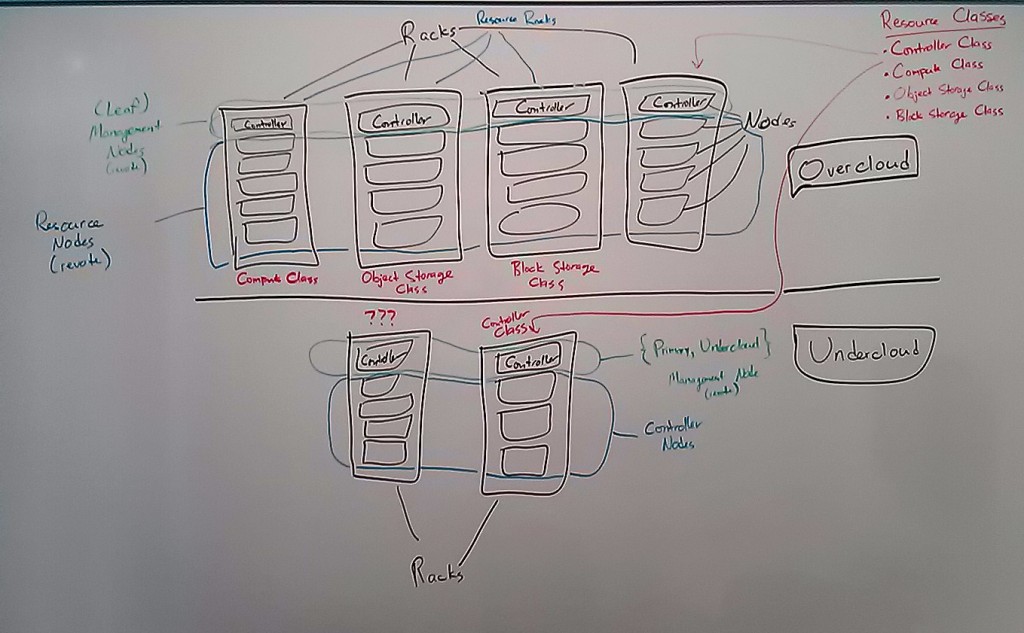Last week a group of developers working on the OpenStack projects TripleO and Ironic convened in the sunny vale of Sunnyvale for a mid-cycle meetup.
My focus was primarily on Ironic, though lots of discussion about TripleO happened. (Here is some Tuskar documentation, for example.) I thought it would be worthwhile to quickly summarize my experiences:
- About 40 people turned out, including some really bright folks from HP, Yahoo!, Mirantis, Rackspace, and Red Hat. (And surely some others that I’ve temporarily forgotten—sorry!) Just meeting everyone I’ve been working with online was pretty valuable.
- A whole ton of patches got rapidly tested and merged, since sitting in the same room instead of being on separate continents made it much more efficient. In fact, a lot of patches got written and merged.
- We hit feature freeze Tuesday. On Monday, -2’s were given to bigger patches to ensure that we had time to review everything. The -2 will be lifted once development for Juno opens up. Some of the things bumped include:
- Serial console support
- Migration path from Nova Baremetal
- Windows image deploys
- iLo drivers for power and virtual media
- Because of feature freeze across projects, the Ironic driver for Nova was temporarily copied into Ironic’s source tree so we can work on it there.
- Described in the same email linked above, a lot of work went into extending CI coverage for Ironic though it hasn’t yet landed. This test integration will be necessary to graduate from incubation.
- We also identified end-user documentation as an important task, one which is both required to graduate incubation and as something that can be done during feature freeze in addition to bugfixes. This Etherpad tries to outline what’s required.
- A lot of whiteboarding was done around a ramdisk agent for Ironic. The idea is that nodes can boot up a richer agent to support more advanced configuration and lifecycle management. The link here goes to the introduction of a pretty interesting thread.


